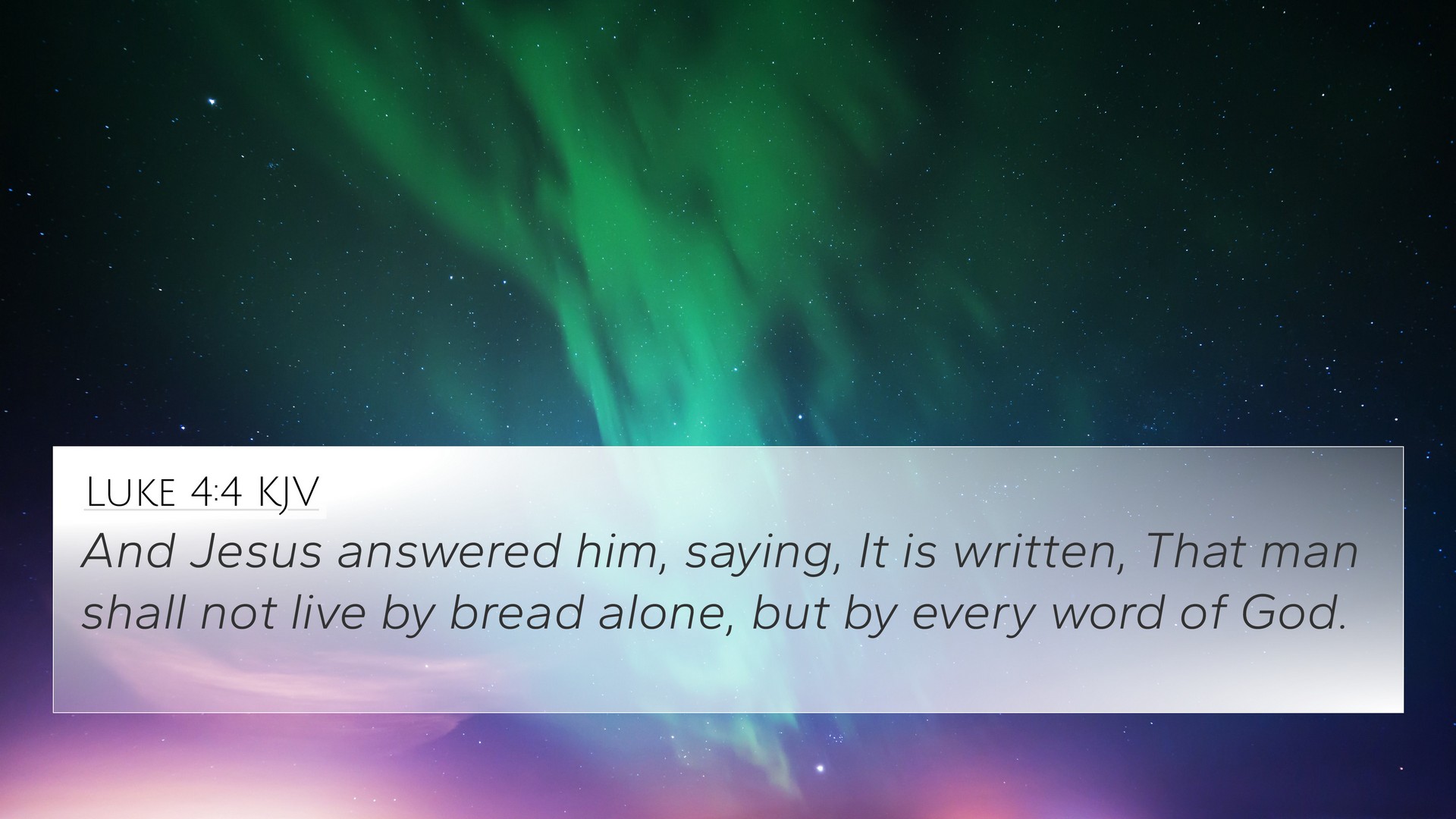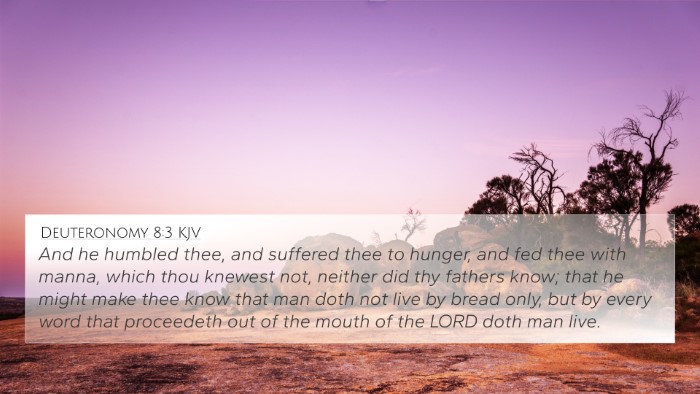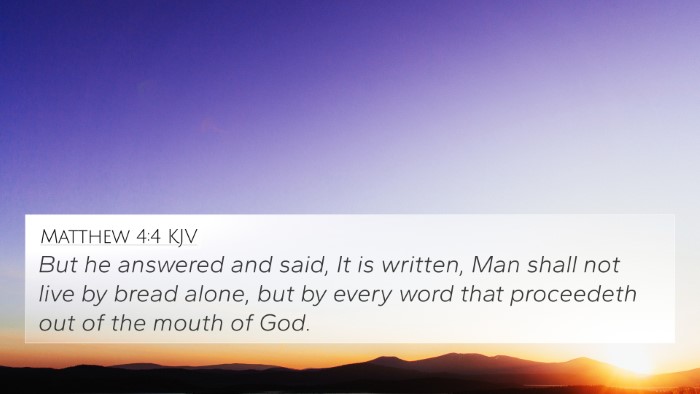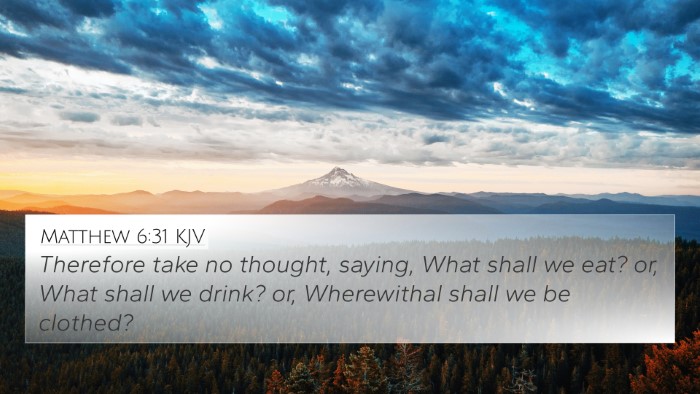Understanding Luke 4:4
Verse: "And Jesus answered him, saying, It is written, That man shall not live by bread alone, but by every word of God." (Luke 4:4 KJV)
Summary of Meaning
This verse is part of the narrative of Jesus’ temptation in the wilderness. Here, he responds to Satan’s challenge to turn stones into bread by quoting Scripture from Deuteronomy 8:3.
Spiritual Significance
Matthew Henry: Henry emphasizes the necessity of spiritual sustenance alongside physical needs. The essence of life is not merely survival through material provisions, but in living by God's Word. This reflects a profound understanding of human dependency on divine truth.
Albert Barnes: Barnes interprets the passage as a declaration of spiritual priorities. He remarks that Jesus cites God's words to underscore a truth: material food is transient, but spiritual nourishment is eternal and essential for one's sustenance. This dialogue illustrates Christ's reliance on Scripture in moments of crisis.
Adam Clarke: Clarke notes the allusion to the broader narrative in Deuteronomy where Israel learned that God provided manna to teach them the importance of trusting in Him for their needs. He highlights that true life is sustained through obedience and faith in God's revelations.
Cross-References and Thematic Connections
This verse draws connections to various other scriptures, deepening its thematic significance:
- Deuteronomy 8:3: "And he humbled thee, and suffered thee to hunger, and fed thee with manna, which thou knewest not, neither did thy fathers know..."
- Matthew 6:25: "Therefore I say unto you, Take no thought for your life, what ye shall eat, or what ye shall drink..."
- John 6:35: "And Jesus said unto them, I am the bread of life: he that cometh to me shall never hunger..."
- Romans 10:17: "So then faith cometh by hearing, and hearing by the word of God."
- Matthew 4:4: (Parallel account) "But he answered and said, It is written, Man shall not live by bread alone, but by every word that proceedeth out of the mouth of God."
- Psalms 119:105: "Thy word is a lamp unto my feet, and a light unto my path."
- 1 Peter 2:2: "As newborn babes, desire the sincere milk of the word, that ye may grow thereby."
Thematic Analysis
The interaction between Jesus and Satan highlights the spiritual warfare faced by believers. It illustrates the concept that reliance on God’s Word is paramount. This thematic connection supports the idea that in times of uncertainty and trial, turning to Scripture provides guidance and sustenance for the soul.
Bible Verse Parallels
Through the lens of comparative Bible verse analysis, we observe that this verse is significant not only in the context of temptation but also in demonstrating knowledge of Scripture as a defense against spiritual adversity. Both Old and New Testament verses reinforce the necessity of spiritual food—the Word of God—as more lasting than physical bread.
Tools for Bible Cross-Referencing
For those seeking to engage deeper with this verse and others, a number of tools and methods can enhance study:
- Bible Concordance: Utilize a concordance to locate terms and themes relevant to your scripture study.
- Bible Cross-Reference Guide: Such guides can provide insights into similar verses across different books of the Bible.
- Cross-Referencing Bible Study: Implement methods that allow for thematic and comparative study of scriptures.
- Bible Chain References: Track biblical themes across various texts to build a comprehensive understanding.
Conclusion
Luke 4:4 serves as a powerful reminder that life is sustained by following God’s Word, demonstrating both the necessity of spiritual nourishment and the effectiveness of Scripture against temptation. The connections found through cross-referencing offer a deeper understanding of Jesus’ message and how it applies to believers today.














